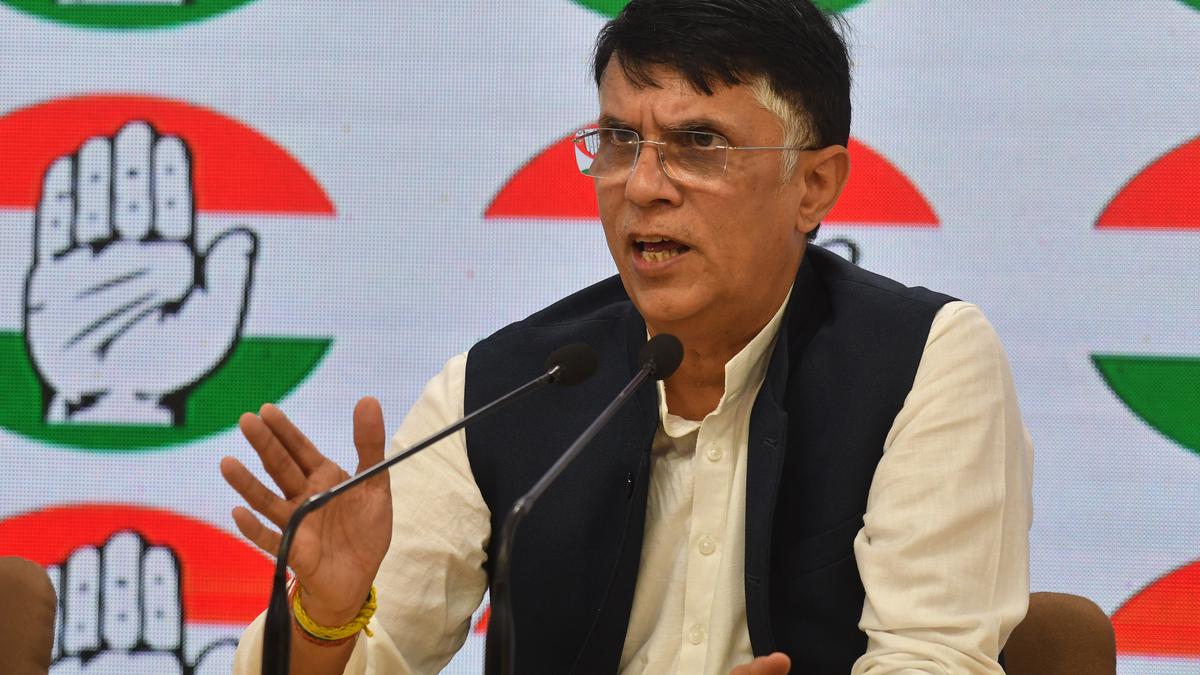 |
|
The passing of former Indian Prime Minister Dr. Manmohan Singh on December 26th, 2024, at the age of 92, sparked a political controversy surrounding the arrangements for his last rites and the subsequent immersion of his ashes. While he received a state funeral, the absence of prominent Congress leaders during the immersion of his ashes in the Yamuna River ignited a war of words between the Congress party and the ruling BJP. The BJP criticized the Congress for not accompanying Dr. Singh's family during this significant ceremony, while the Congress defended its actions, emphasizing the need to respect the family's privacy.
Congress leader Pawan Khera issued a statement clarifying the party's decision. He stated that senior Congress leaders, including Sonia Gandhi and Priyanka Gandhi Vadra, visited the family at their residence following the cremation. After discussions with the family, it was decided that the immersion ceremony, being an emotionally charged event, should be conducted with minimal disruption. Khera explained that the family had experienced a lack of privacy during the cremation, with some extended family members unable to reach the pyre site. Therefore, the decision was made to allow the family to complete the 'Phool Chunana' (the ritual of picking flowers) and the ash immersion in a more private setting.
This explanation, however, did little to quell the BJP's criticism. The ongoing political tension between the two parties highlights a deeper divide that transcends this specific event. The controversy also encompasses disagreements about the arrangements for Dr. Singh’s funeral and the establishment of a memorial in his honor. The Congress has accused the BJP government of disrespecting the former Prime Minister, further fueling the already tense political atmosphere. The conflict underscores the complex interplay between political maneuvering and the respect shown (or perceived to be lacking) towards prominent figures in Indian politics.
The immersion of Dr. Singh's ashes followed Sikh rituals, with his wife Gursharan Kaur and three daughters, Upinder Singh, Daman Singh, and Amrit Singh, present at the site along with other relatives. The ashes were collected from Nigambodh Ghat on December 30th, 2024, and taken to the 'Asth Ghat' on the Yamuna River near Majnu ka Tila Gurdwara. Subsequent Sikh religious ceremonies, including an 'Akhand Path' (continuous recitation of scripture) at the family's residence and a 'bhog' ceremony, 'Antim Ardas' (final prayer), and 'kirtan' (devotional singing) at Rakab Ganj Gurdwara, are planned for the following days.
Dr. Manmohan Singh's legacy extends beyond the political debates surrounding his final rites. His tenure as Prime Minister from 2004 to 2014 witnessed significant economic reforms and India's rise on the global stage. His quiet and intellectual approach to governance left an enduring mark on Indian politics. However, the controversy surrounding his death and the immersion of his ashes highlights the often-fraught relationship between political parties in India, particularly during moments of national mourning and remembrance. The incident serves as a reminder of the sensitivities involved in handling such matters and the potential for political differences to overshadow the solemnity of the occasion.
The differing perspectives on the appropriateness of Congress's absence from the ash immersion ceremony underscore the broader political context. While Congress emphasized respecting the family's need for privacy and the emotional sensitivity of the ritual, the BJP's criticism points to the party's desire to capitalize on what it perceives as an opportunity to score political points. This action may reflect the current state of political polarization in India, where even events of national significance can become intertwined with partisan considerations. The incident reveals the complexities of balancing public expectations with the desire to respect the privacy of a bereaved family, especially when the deceased holds a prominent position in the public eye. The lack of consensus on this issue, therefore, emphasizes the difficulty of navigating such delicate situations while managing public perceptions and political considerations.
The events surrounding Dr. Manmohan Singh's passing and the subsequent controversy are not merely about the specifics of funeral arrangements. Instead, they reflect the wider political climate and the dynamics between the ruling BJP and the opposition Congress. The incident serves as a case study in how personal grief can intersect with political opportunism, and how seemingly simple acts can be fraught with symbolic meaning in the charged atmosphere of Indian politics. The ongoing debate highlights the enduring complexities of navigating personal and political considerations, particularly in the aftermath of the death of a prominent national figure.
Source: Not present at ashes immersion of ex-PM to ensure privacy to family: Congress
